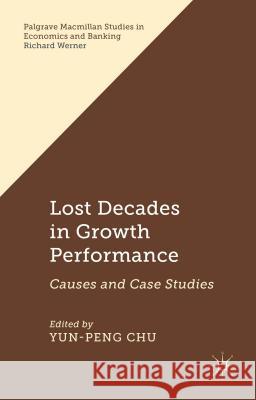Lost Decades in Growth Performance: Causes and Case Studies » książka
topmenu
Lost Decades in Growth Performance: Causes and Case Studies
ISBN-13: 9781137478740 / Angielski / Twarda / 2015 / 249 str.
Lost Decades in Growth Performance: Causes and Case Studies
ISBN-13: 9781137478740 / Angielski / Twarda / 2015 / 249 str.
cena 401,58
(netto: 382,46 VAT: 5%)
Najniższa cena z 30 dni: 385,52
(netto: 382,46 VAT: 5%)
Najniższa cena z 30 dni: 385,52
Termin realizacji zamówienia:
ok. 22 dni roboczych.
ok. 22 dni roboczych.
Darmowa dostawa!
This book explains where and how lost decades in economic growth occur in the world.











